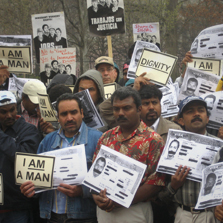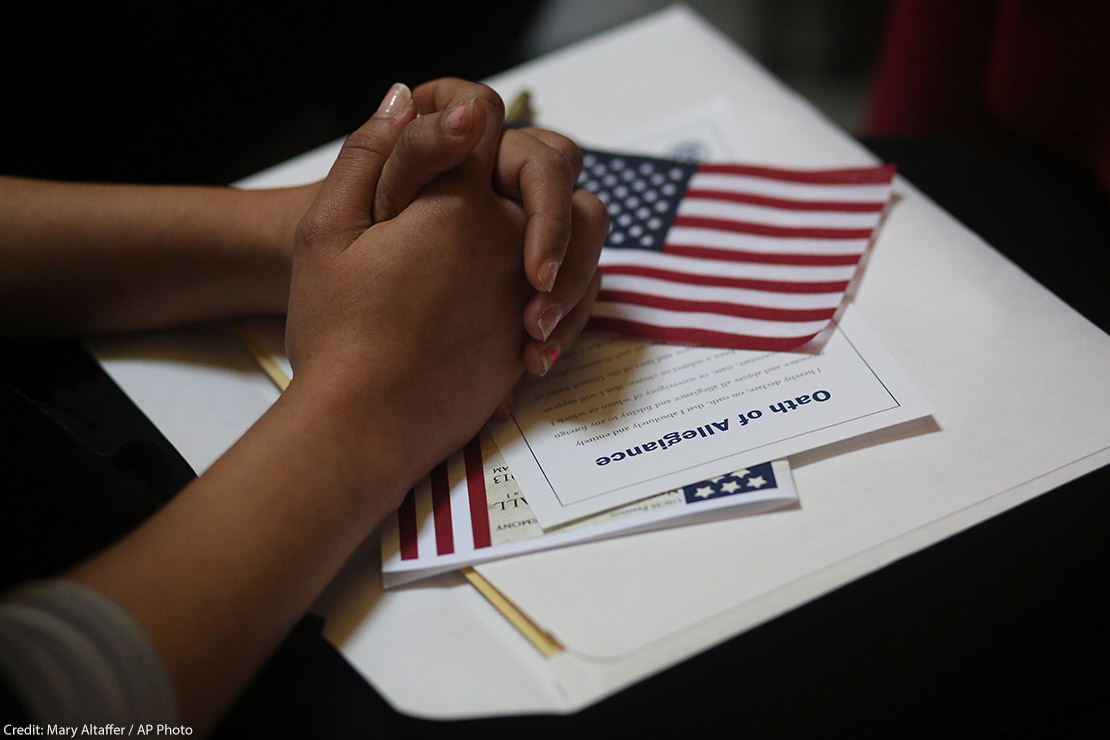Human Rights and Immigration
All Cases
5 Human Rights and Immigration Cases

Court Case
Mar 2015
Human Rights and Immigration
IACHR Hearing on Lack of Workplace Protection for Undocumented Workers
On March 16, the ACLU, the National Employment Law Project, and the University of Pennsylvania’s Transnational Legal Clinic will testify before the Inter-American Commission on Human Rights. At issue is the U.S. government’s failure to ensure that undocumented workers in the United States can access workplace protections. While undocumented workers undertake some of the most dangerous, low-wage jobs in the United States, the patchwork of state labor laws leaves many of these workers vulnerable to exploitation and discrimination, without legal protections when they are injured at work. Moreover, some employers have taken advantage of this situation to report undocumented workers to immigration officers for deportation when they report labor abuses.
Explore case
Court Case
Mar 2015

Human Rights and Immigration
IACHR Hearing on Lack of Workplace Protection for Undocumented Workers
On March 16, the ACLU, the National Employment Law Project, and the University of Pennsylvania’s Transnational Legal Clinic will testify before the Inter-American Commission on Human Rights. At issue is the U.S. government’s failure to ensure that undocumented workers in the United States can access workplace protections. While undocumented workers undertake some of the most dangerous, low-wage jobs in the United States, the patchwork of state labor laws leaves many of these workers vulnerable to exploitation and discrimination, without legal protections when they are injured at work. Moreover, some employers have taken advantage of this situation to report undocumented workers to immigration officers for deportation when they report labor abuses.

Court Case
May 2013
Human Rights and Immigration
David, et al. v. Signal International, LLC, et al.
Hundreds of workers trafficked to the U.S. from India to work in shipyards after Hurricane Katrina were lured here with dishonest assurances of becoming lawful permanent U.S. residents. In February 2015, the company responsible and its representatives were ordered to pay $14 million to five of the victims. It was the largest amount ever awarded by a jury in a labor trafficking case.
Explore case
Court Case
May 2013

Human Rights and Immigration
David, et al. v. Signal International, LLC, et al.
Hundreds of workers trafficked to the U.S. from India to work in shipyards after Hurricane Katrina were lured here with dishonest assurances of becoming lawful permanent U.S. residents. In February 2015, the company responsible and its representatives were ordered to pay $14 million to five of the victims. It was the largest amount ever awarded by a jury in a labor trafficking case.

Court Case
Mar 2013
Human Rights and Immigration
EEOC v. Signal International, LLC
On April 20, 2011, the United States Equal Employment Opportunity Commission (EEOC) filed a lawsuit against Signal International, LLC for abusing hundreds of foreign guestworkers from India lured to work in the U.S. after Hurricane Katrina.
Explore case
Court Case
Mar 2013

Human Rights and Immigration
EEOC v. Signal International, LLC
On April 20, 2011, the United States Equal Employment Opportunity Commission (EEOC) filed a lawsuit against Signal International, LLC for abusing hundreds of foreign guestworkers from India lured to work in the U.S. after Hurricane Katrina.

Court Case
Jul 2012
Human Rights and Immigration
Case Profile - Petition Alleging Violations of the Human Rights of Undocumented Workers by the United States of America
In 2002, the Supreme Court decided Hoffman Plastic Compounds, Inc vs. NLRB, which found that an undocumented worker who was unlawfully fired for engaging in union organizing activities was not entitled to the back-pay that another "documented" worker would receive.
Explore case
Court Case
Jul 2012

Human Rights and Immigration
Case Profile - Petition Alleging Violations of the Human Rights of Undocumented Workers by the United States of America
In 2002, the Supreme Court decided Hoffman Plastic Compounds, Inc vs. NLRB, which found that an undocumented worker who was unlawfully fired for engaging in union organizing activities was not entitled to the back-pay that another "documented" worker would receive.
